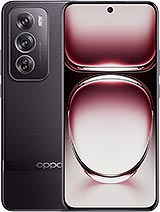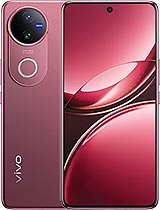Realme 13+ alternatives
Tap above to see alternatives.
Vivo V50 alternatives
Tap above to see alternatives.
4x2.5 GHz Cortex-A78
4x2.0 GHz Cortex-A55
1x2.63 GHz Cortex-A715
3x2.4 GHz Cortex-A715
4x1.8 GHz Cortex-A510
8GB 256GB (UFS 3.1)
12GB 256GB (UFS 3.1)
8GB 256GB (UFS 2.2)
12GB 256GB (UFS 2.2)
12GB 512GB (UFS 2.2)
f/1.8, 26mm (wide), 1/1.95", PDAF, OIS
2 MP
depth
f/1.9, 23mm (wide), 1/1.55", 1.0µm, PDAF, OIS
50 MP
f/2.0, 15mm, 119˚ (ultrawide), 1/2.76", 0.64µm, AF
1080p@30/60/120fps
1080p@30fps
f/2.4, 24mm (wide), 1/3.0"
f/2.0, 21mm (wide), 1/2.76", 0.64µm, AF
1080p@30fps
SIM1: Nano, SIM2: Nano (Hybrid)
SIM1: Nano, SIM2: Nano
9 5G bands
n1, n3, n5, n8, n28, n40, n41, n77, n78
9 5G bands
n1, n3, n5, n8, n28, n40, n66, n77, n78
In this performance comparison, the Vivo V50 with its Qualcomm Snapdragon 7 Gen 3 (4nm) performs better than the Realme 13+ with the Mediatek Dimensity 7300 (4nm), thanks to superior chipset efficiency.
Vivo V50 launched with Android 15 and will receive updates until Android 18, whereas Realme 13+ launched with Android 14 and will get Android 16. Vivo V50 will get security updates until 2029 (approx. 4 years), while Realme 13+ is supported till 2027.
Both Realme 13+ and Vivo V50 feature AMOLED displays, offering vibrant colors and deeper blacks. Both smartphones offer the same 120 Hz refresh rate. Vivo V50 also boasts a brighter screen with 4500 nits of peak brightness, enhancing outdoor visibility. Both phones have the same screen resolution.
Vivo V50 features a larger 6000 mAh battery, potentially delivering better battery life. Vivo V50 also supports faster wired charging at 90W, compared to 80W on Realme 13+.
Vivo V50 offers better protection against water and dust with an IP69 rating.
¹ Scores can vary even with the same chipset due to RAM, thermals, and software optimization.












